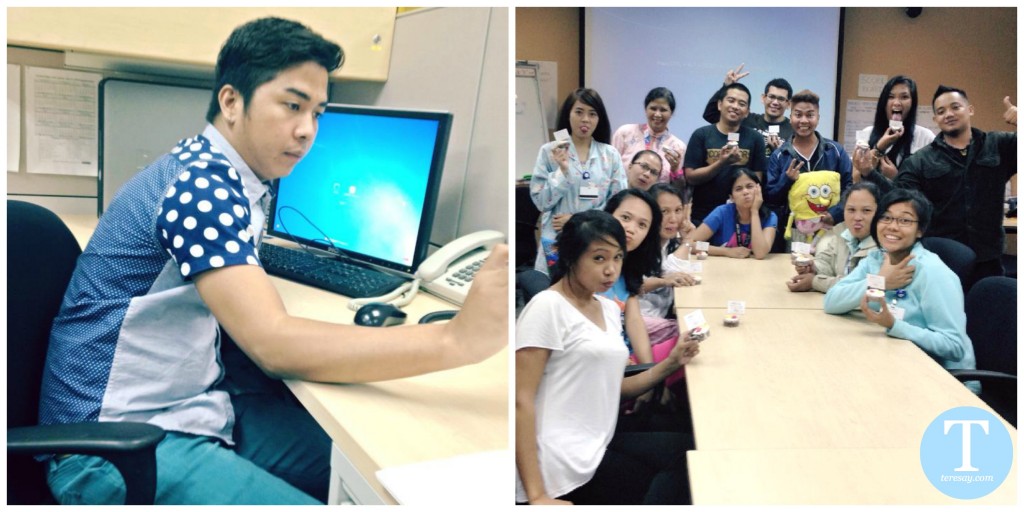Individual and Team Learning at Work
In school, we are exposed to both individual and team learning. We learn on our own as we listen to teachers, process the given information by ourselves, and take corresponding tests to determine just how much we have managed to absorb given minimal interaction with fellow students. We are also given a taste of team learning when we are required to submit a group project wherein assessment is provided based on the overall performance of the group and not as individuals. It is not much different in an organizational set-up. Individual and team learning will always be prerequisites to career success.
Individual Learning
Generally, fierce competition in climbing the corporate ladder exists in the work environment. It is common therefore for many individuals to strive to be above the rest which is not a bad thing at all. Reality says that those who manage to do this are presented more and better opportunities for promotion.
Being recognized for one’s individual capacity to use learning for self-development and improvement is indeed something to be proud of. It is impossible however to totally disregard learning derived from working within a group. In the work environment, there is probably not one position which will not require interacting with others.
Team Learning
Team learning is defined as a process of working collectively for the purpose of achieving a common goal. Each team member is expected to share his or her knowledge and skills in the hope that team members will end up complementing each other’s capabilities. The main idea here is to reinforce existing strengths and to address existing weaknesses to enable the team to produce positive results.
Commitment from each member is necessary for team learning to happen. Having one or two just actively contributing while the rest waits is the perfect recipe for failure. It is a mistake to think that a team member has nothing to contribute. Everyone will always have something although many are yet to discover it.
How We Learn as Individuals and Teams
1. We learn from absorbing information presented to us. There are bound to be differences in individual capability and learning pace. Fast learners can make themselves available in helping slow learners to cope. This is especially so when working as a team is required. Slow learners however, have the responsibility to make sure that they are able to cope so as not to sacrifice team goals with specific time schedules.
2. We learn from experience. No matter how much theories are presented to us, learning seldom occurs without doing. Only experience can give us the genuine confidence we need to do tasks that comes with so much responsibility.
3. We learn from mistakes. One of the primary obstacles to learning is the fear of committing mistakes especially in front of colleagues. This is natural but it has to be overcome. Not trying at all deprives us of the chance to learn in a way that will stay with us for a long time. This is of course not to encourage committing irresponsible mistakes at a whim. There are some things that can only be learned by learning what not to do the next time the same scenario is presented to us.
My Say
The limits we have put on ourselves will always be the most significant obstacle to any form of learning. In learning, we cannot afford to say that this is only how far I can go or will go. Where will we find ourselves in situations that require more from us? We would probably be left behind.
Nothing is really easy especially when it comes to reaching for our goals. At work, we will be challenged to maximize our potentials not only for our personal benefit but also in achieving team goals. While it is highly recommended to keep our individual capabilities in constant check, it would be best to also learn to work with a team.
Image Credit: Izia Tan














Mommy Peach
Learning as a team will also give the team unity. It is important to participate and give it all your understanding.
Katherine Rose Coronel- Rivera
I’m the type of person who wants to work alone. I can concentrate better and think better by myself but there are times that when situation needs me to work as a part of a team, I can be a team player also.
Debarpan
We really always learn from mistakes but it’s always better learn from other’s mistake rather than facing that by your own.
franckxethee
There are a lot of things to learn by working as an individual but we grab new concept and expand our social horizons by working as a group.
rochkirstin
I think everyone of us has the capacity to learn whatever. We just have to have to drive to make time for it and be consistent with pursuing the knowledge and skills. Yup, mistakes are fine as long as we recognize that there are lessons.
Teri
Usually in school, they group students for a task, but they really don’t emphasize the importance of a team. If student learn their role in a team at an early age, then it would greatly help our economy. I love working in a team that knows how to appreciate their team members.